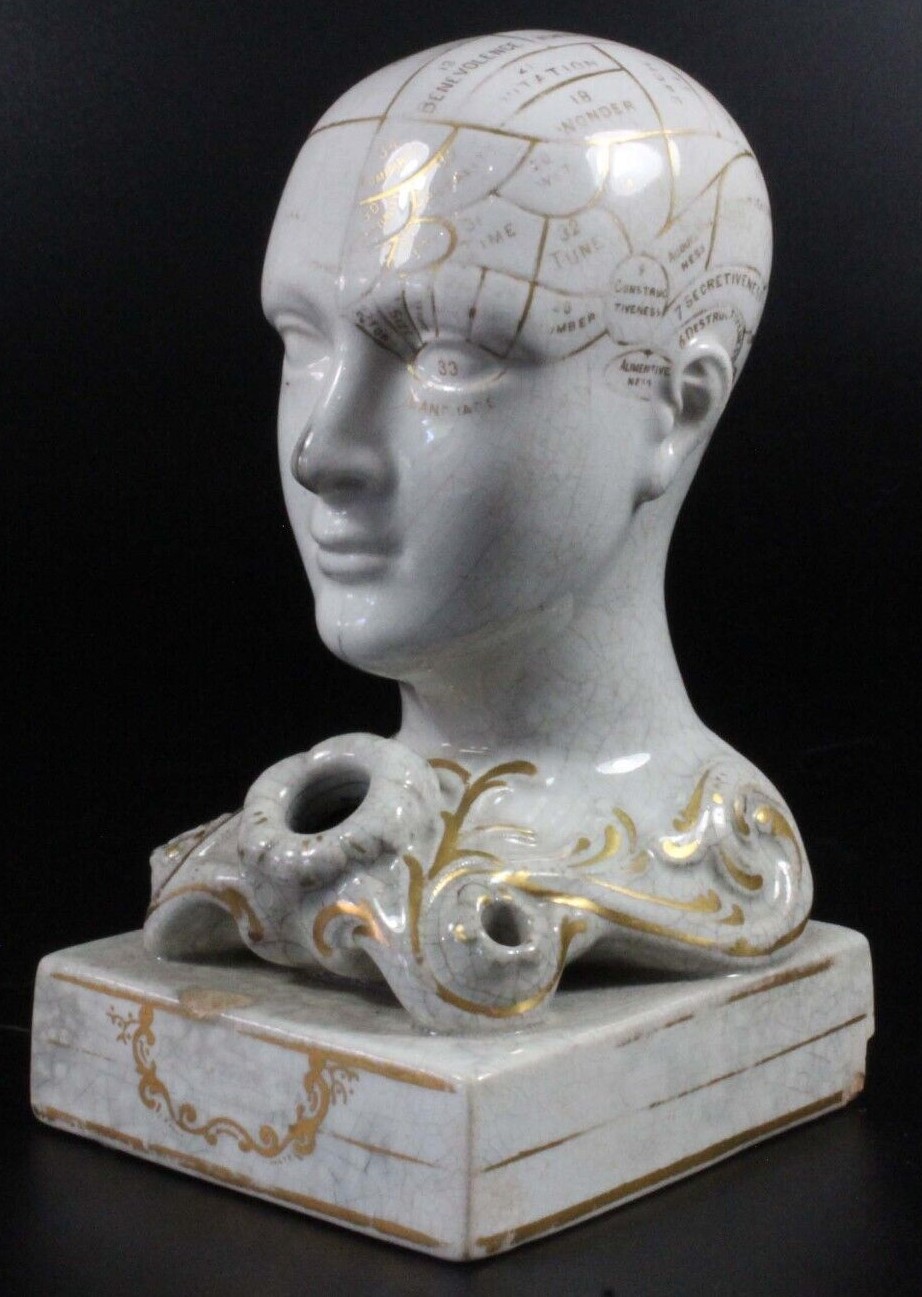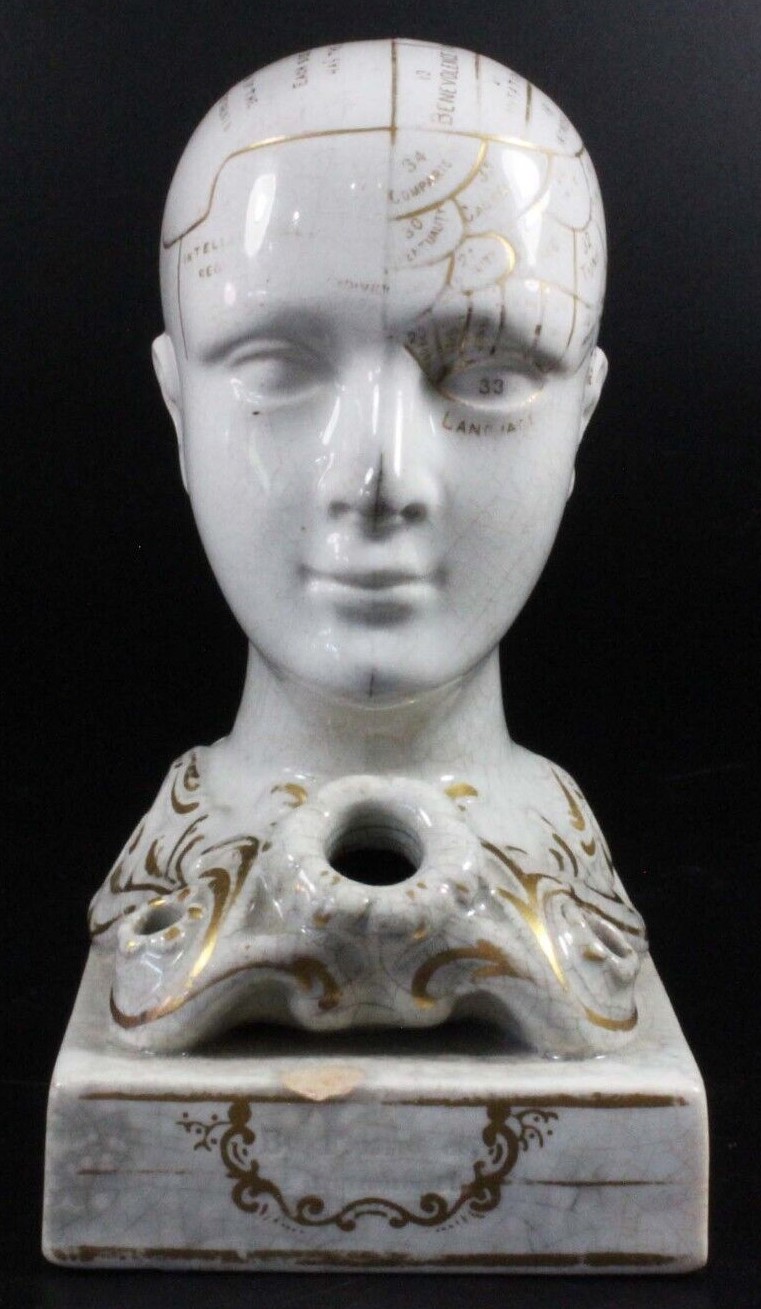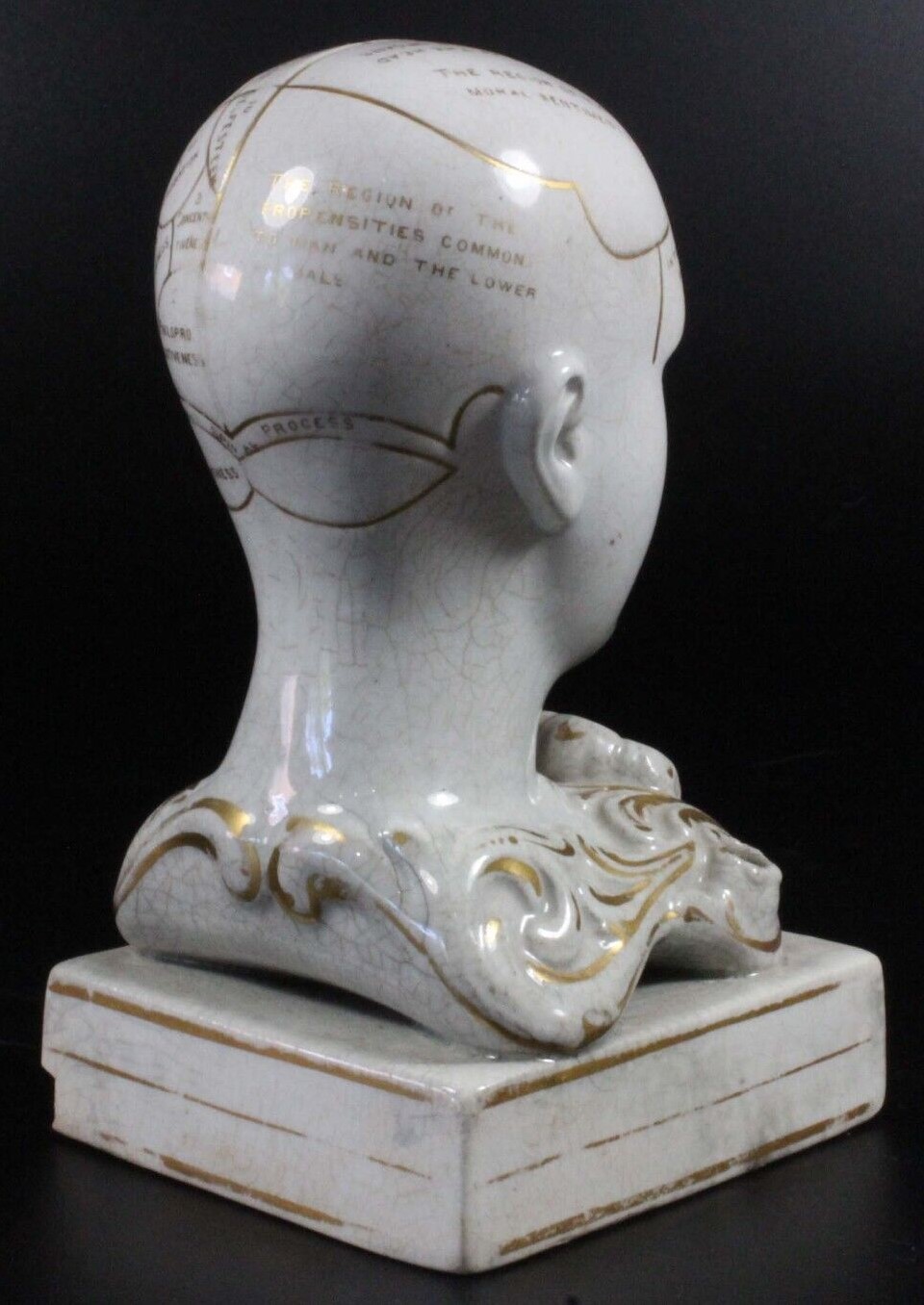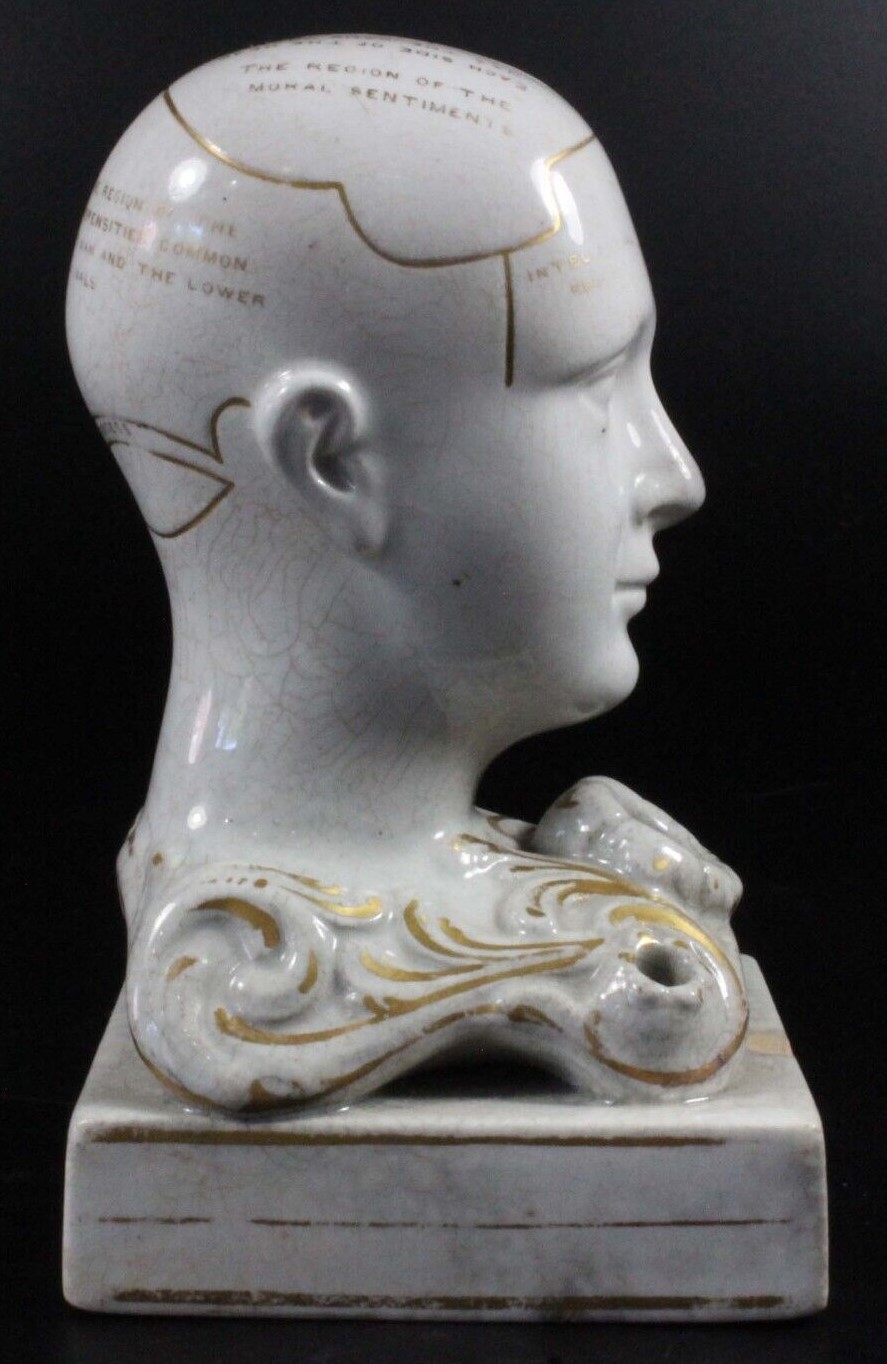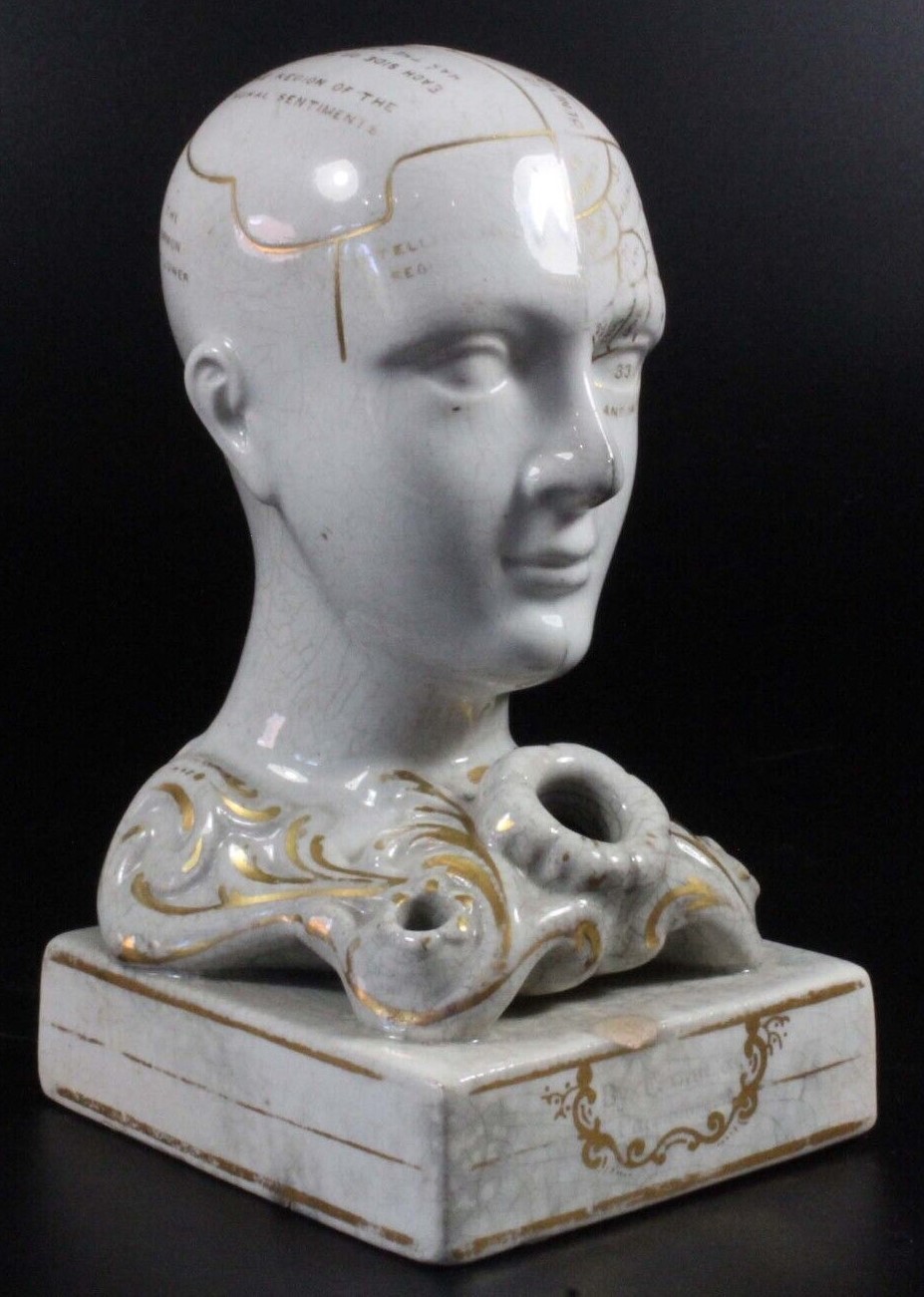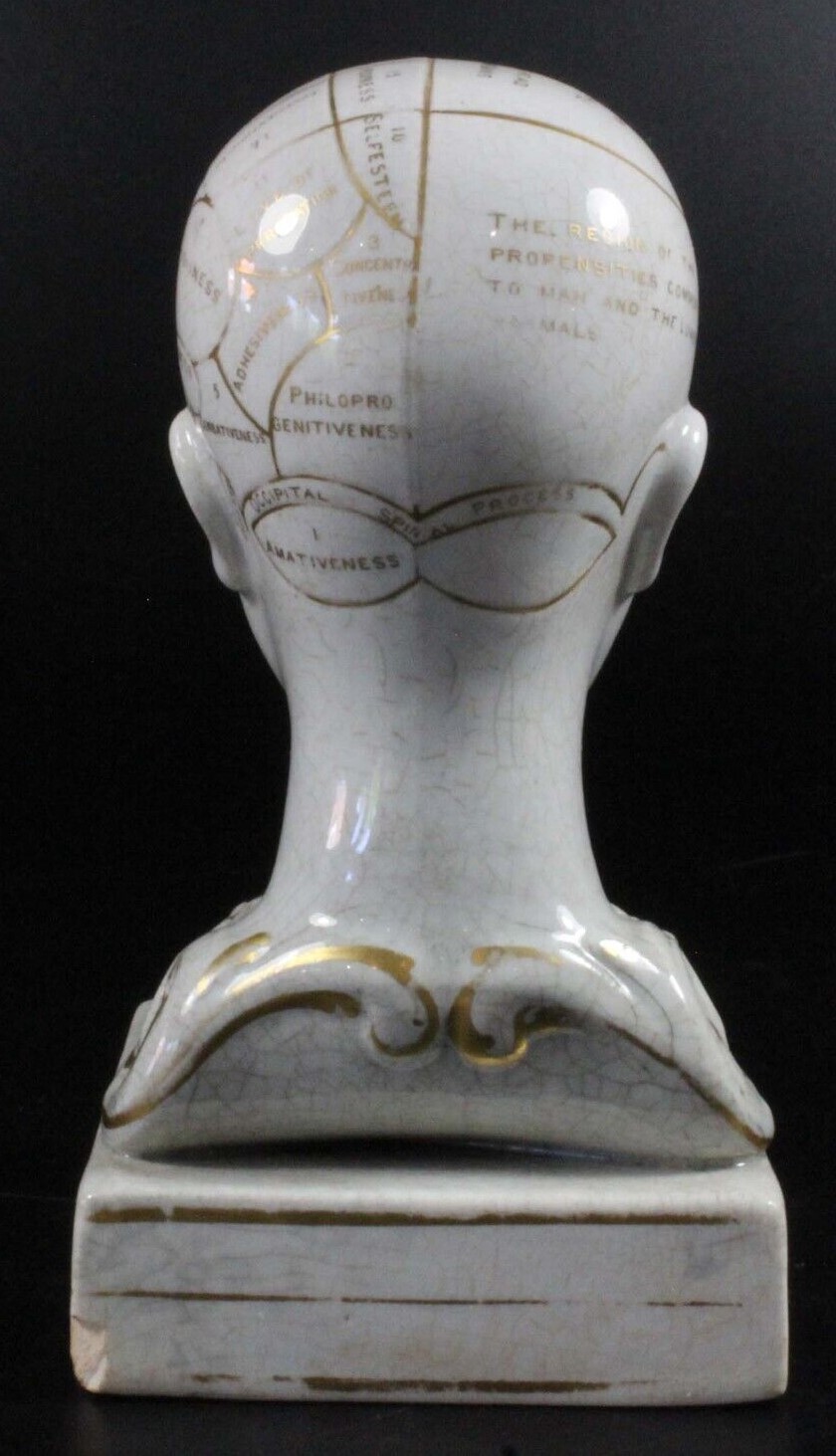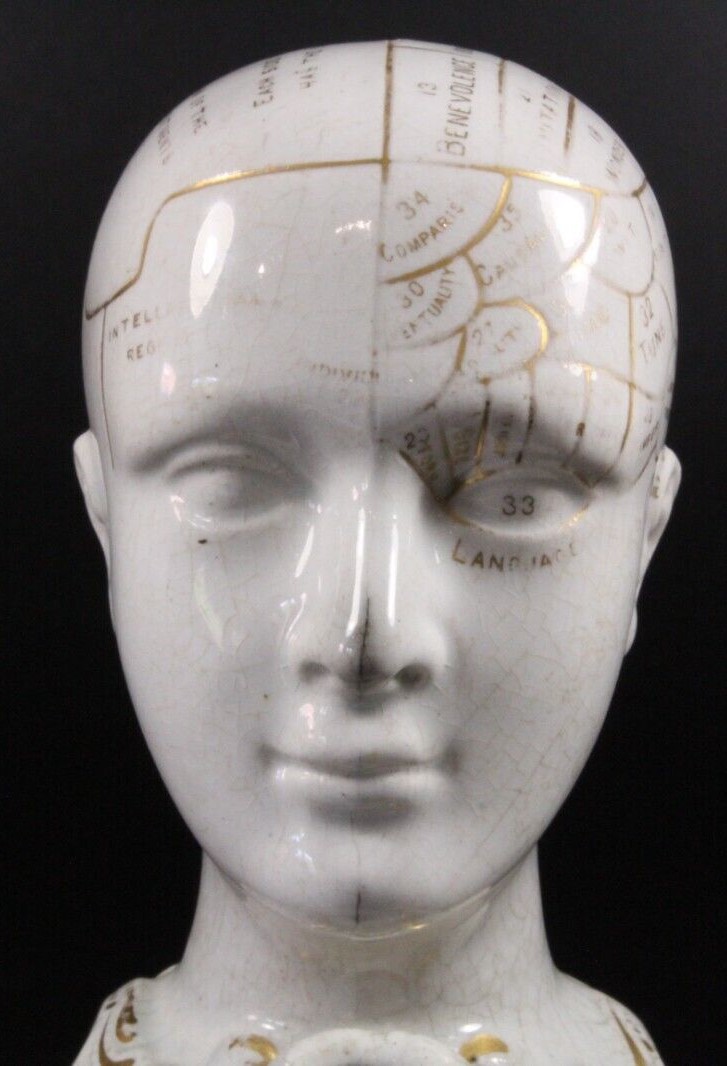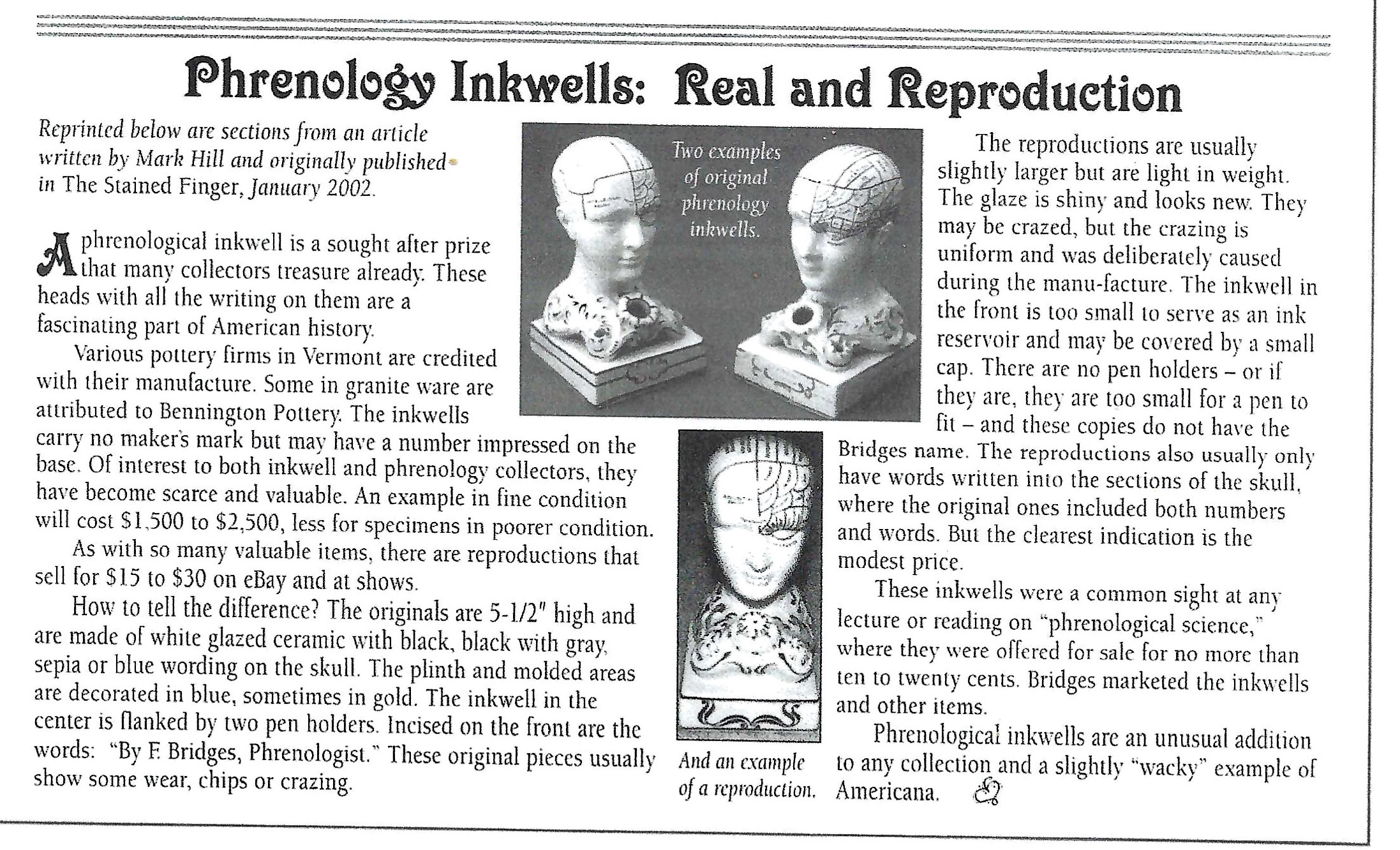
Phrenology Bust Inkwell
| Categories | Ceramics/Porcelain Figural, Mechanical - Pump / Siphon |
| Type | Science |
| Material | Pottery |
| Markings | See Narrative |
| Manufacturer | Undetermined |
| Origin | United States |
| Date or Era | circa 1860 |
| Measuring | 3” x 3 ¼” x 5 ½” high |
Franze Joseph Gall, an anatomist in Germany in the 18th century, attempted to divine individual character and intellect by the shape of the skull. Phrenology was used to map the functional areas of the brain. Various manufacturers in Vermont are credited with making these inkwells. The inkwell is the hole in the center and there are small quill holes on each side.
Pictured is an original glazed pottery phrenology bust and inkwell with pen holes and impressed with the title “By F. Bridges Phrenologist”. Frederick Bridges was a renowned Phrenologist and author of the book “Phrenology Made Practical”.
The same model can be seen in the Science Museum collection in London.
Earthenware phrenological bust | Science Museum Group Collection
An article from The Stained Finger delineates the differences between genuine and reproduction Phrenology busts.
See also this Inkipedia entry: Phrenology Head Inkstand – The Society of Inkwell Collectors (SOIC)
Sold for $544 in January 2024
Sold for $563 in April 2024
Content disclaimer. The information posted is the owner’s best knowledge and may not have been vetted by the SOIC. We welcome comments, corrections, and additions, working to make our website information comprehensive and accurate.
Join the Society of Inkwell Collectors (SOIC) – it’s free!
Founded in 1981 as a non-profit organization,
we are documenting inkwells (and accessories).
We’re here to help and inform!

